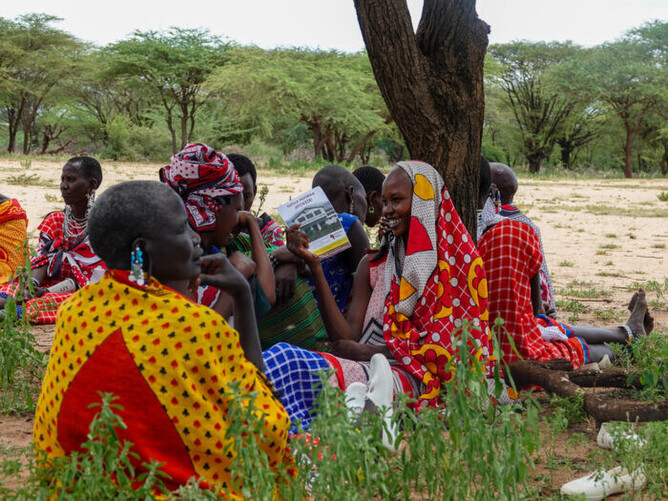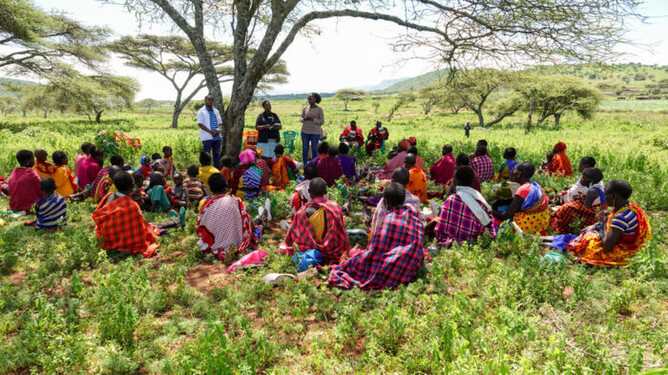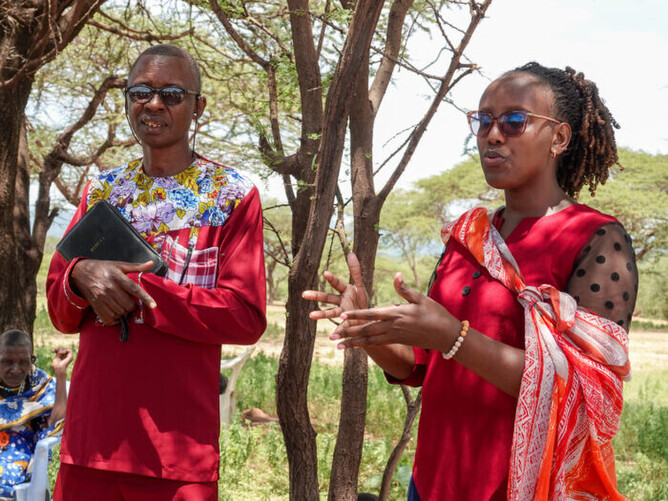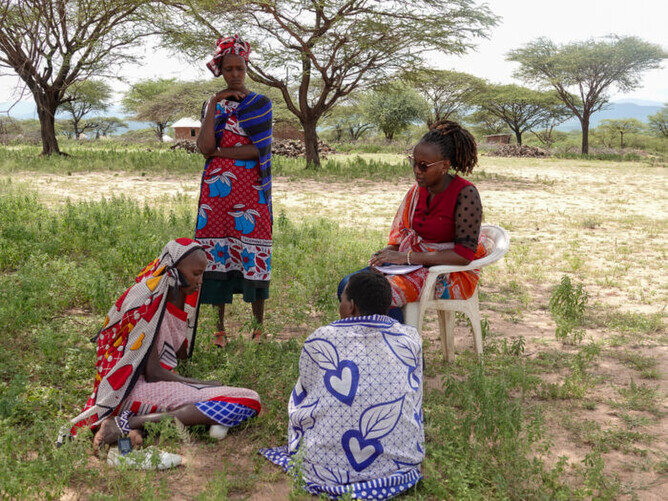In just 45 minutes, a team from Maternity Africa flew with MAF to a dusty airstrip in northeast Tanzania with a mission to raise awareness on the devastating impact of obstetric fistula.
MAF provided transport from Arusha to Malambo, for a team from Maternity Africa, who run the Kivulini Maternity Centre.
Michael Hynds, the Country Director for Maternity Africa shared his gratitude for the partnership with MAF, highlighting the efficiency of air travel that reduced a nine-hour journey on road to a contrasting 45 minutes.
“This collaboration provided us a great opportunity and ample time on the ground in Malambo and its environs to conduct fistula outreaches, raising awareness about obstetric fistula and the importance of good maternal healthcare services,” Michael remarked.
“It is important that women don’t deliver at homes where there are significant risks both to themselves and their babies.”
According to the UN, obstructed labour is one of the leading causes of maternal death worldwide accounting for an estimated 8%.
Obstetric fistula (a hole in or near the birth canal) often occurs as a result of prolonged, obstructed labour when a mother does not have access to timely medical assistance and interventions like caesarean section. During this prolonged labour, the mother may endure intense pain for days, and sadly, in many cases, the baby does not survive.
Often women with this condition, go untreated for years, suffering ongoing pain, degradation, and isolation.
Maternity Africa, a Christian organisation based in Arusha, is dedicated to improving maternal and newborn health particularly in isolated communities where women face significant challenges.
Many women in such communities give birth at home without access to skilled medical care, putting themselves and their babies at risk of complications. Some women have bled to death, others lost their babies and others are left suffering from fistula, a condition that is sometimes misunderstood. These women face humiliation and discrimination from their families and communities.
Magdalena, a social worker from Maternity Africa, talked about the importance of combating fistula.
She said, “If we equip the Maasai women with the right knowledge about fistula, its signs, symptoms, and treatment, it will empower them to change their lives for the better.
“Many women are suffering in silence and some, for many years but this is a chance to change their lives through free fistula surgeries to restore their lives, health, and the lost dignity.”
Stewart Ayling, the Country Director of MAF Tanzania, underscores the significance of the partnership between MAF and Maternity Africa, stating, “We’re delighted to be able to partner with Maternity Africa after several years admiring their work. During my time in Arusha, I’ve watched the Maternity Africa hospital in Arusha grow from an empty field to the high-quality maternity facility it is today.”
He emphasised the shared vision of both organisations.
“MAF and Maternity Africa share the desire to see isolation overcome. As MAF, we are overcoming the physical isolation of remote village communities, while Maternity Africa is overcoming the social isolation of marginalized women suffering from obstetric fistula. Together, we can bring help, hope, and healing to women across Tanzania.”
MAF’s Malambo safari, led by evangelist Elisha Moita, is playing a vital role in spreading awareness about fistula within the Maasai community. Through the translation of health messages into the Maasai language, women now have a better understanding of this condition.
Story and photos by Jacqueline Mwende.



